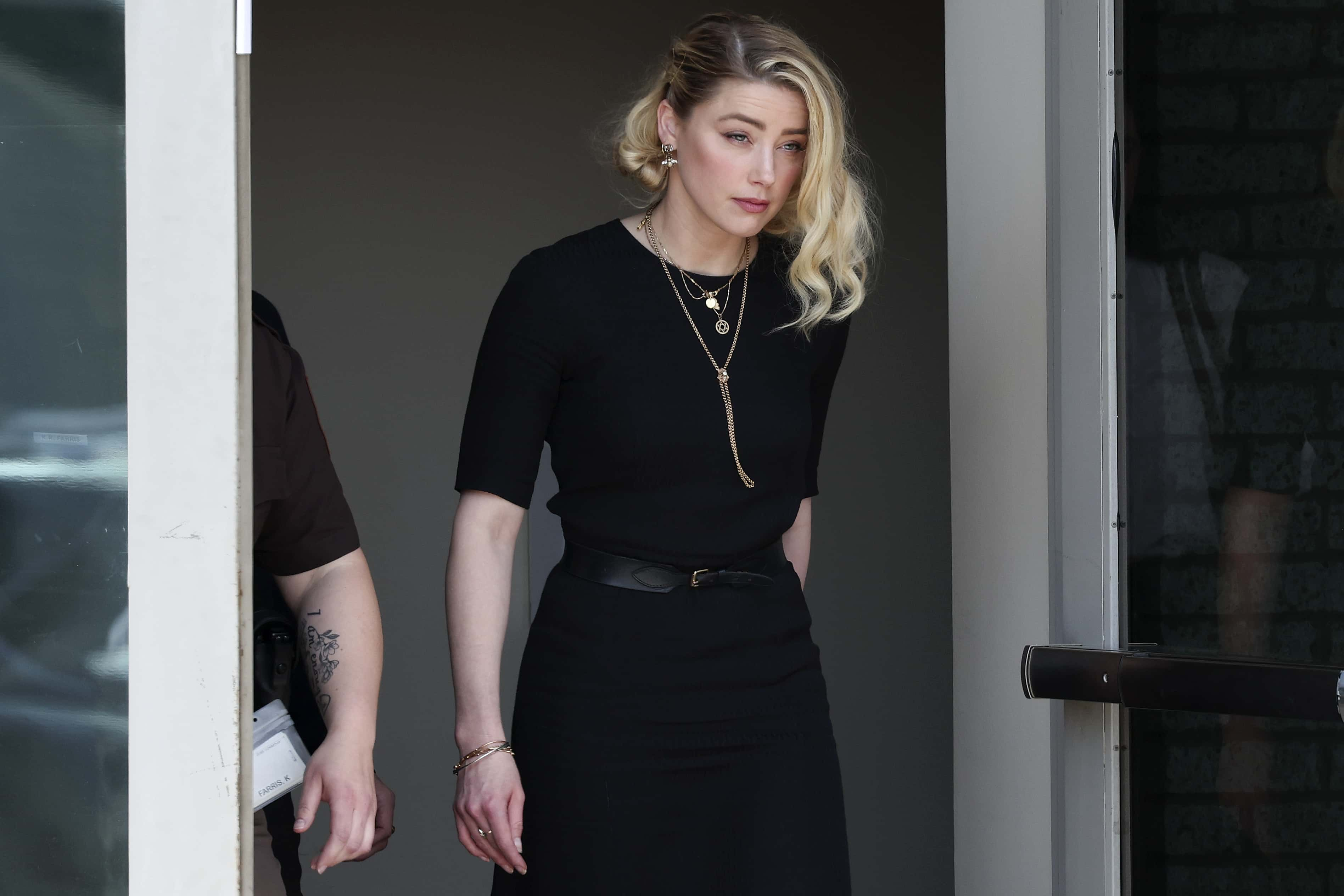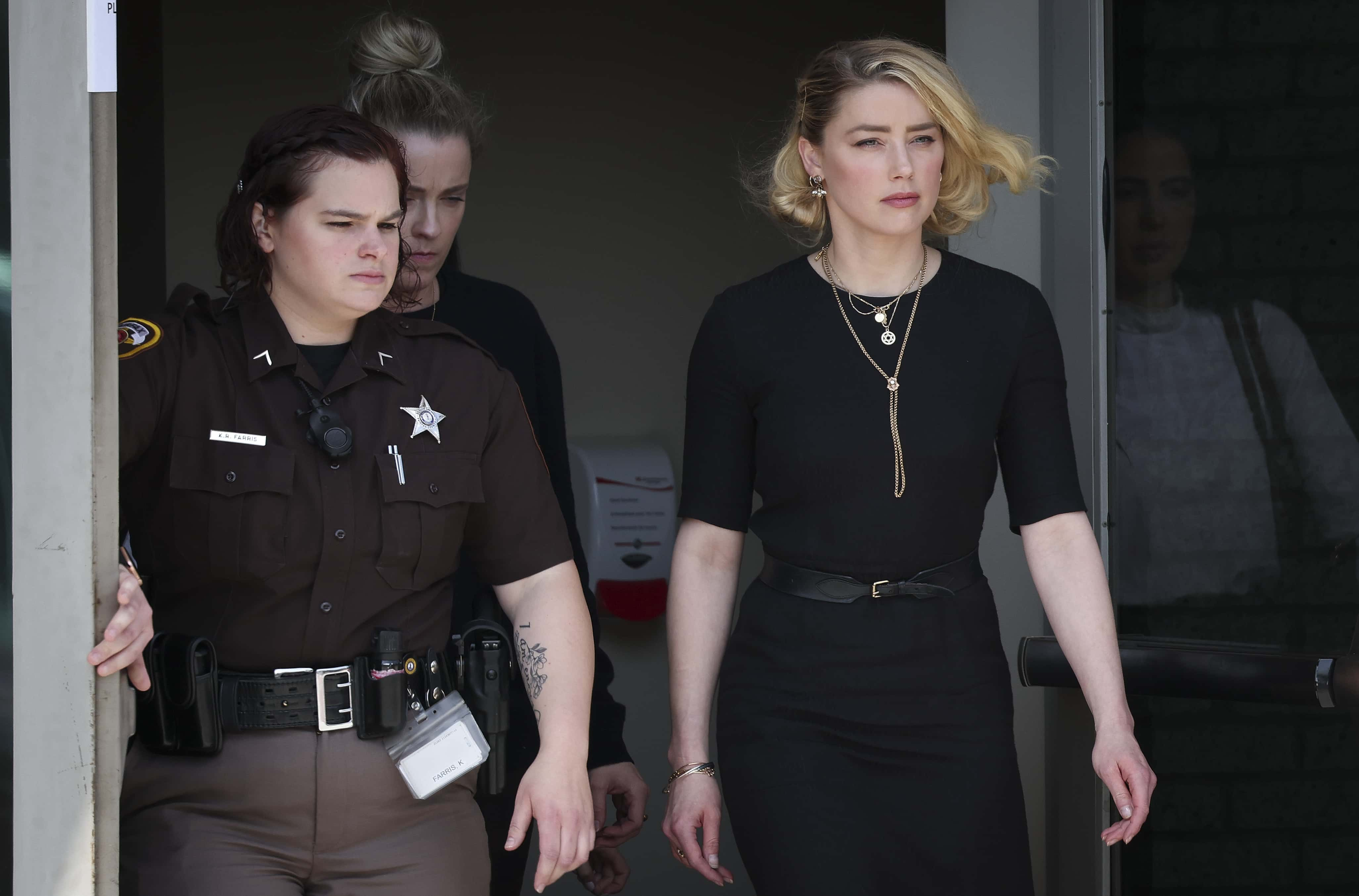Here's why Amber Heard's 'fire in a crowded theatre' comment makes no legal sense at all

Amber Heard is catching a lot of heat due to her recent interview with NBC Today's reporter Savannah Guthrie. So far, she has claimed that Johnny Depp was an abuser, that her actions were a reaction to Johnny's abuse, and that she will stand by her testimonies until the very end. During all this, she made a rather flipping comment about the law of speech,i.e., the First Amendment, which quickly caught the attention of people who are well-versed with the law.
While talking to Heard, Guthrie, who is a lawyer licensed to practice in Washington DC said, "Here’s the thing about the First Amendment. The First Amendment protects free speech. It doesn’t protect lies that amount to defamation, and that was the issue in the case." To this, the Aquaman actress replies, "Yes, exactly. You can’t go into — free speech does not protect you if you, you know, go into a crowded theatre and you scream ‘fire!’ We get the concept of free speech from the Greeks. My understanding of what that means is not just the freedom to speak. It’s a freedom to speak truth to power."
RELATED ARTICLES
'Your case was BAD': Megyn Kelly slams Amber Heard for BLAMING 'unfair' social media for loss
Before we dive further into it, the First Amendment is officially explained as, 'Congress shall make no law respecting an establishment of religion, or prohibiting the free exercise thereof; or abridging the freedom of speech, or of the press, or the right of the people peaceably to assemble, and to petition the Government for a redress of grievances.' Coming to the rescue, Law&Crime quickly tries to clear the air and explains that the phrase 'you can’t yell fire in a crowded theatre' is legally incorrect. The channel's legal analysts were quick to dissect the repercussions she could face due to these remarks.
.@SavannahGuthrie: "The 1st Amendment... doesn't protect lies that amount to defamation."
— TODAY (@TODAYshow) June 14, 2022
Amber Heard: "...It's a freedom to speak truth to power."
SG: "But 'truth' is the word... And that was the issue."
AH: "And that's all I spoke. I spoke it to power, and I paid the price." pic.twitter.com/g6VNYMipu7
Amber Heard's wrong legal remarks
Bob Hille, who himself is a trial attorney, was quick to claim that Amber Heard should be really "careful" in saying what she says as she doesn't want "another defamation suit against her." Heard and her legal team claimed that the UK court found Depp guilty and Bob Hille explained that "The UK court has its own set of rules, you can't equate the two." Backing up the claim, civil litigation attorney Gary Williams said, "You know those type of words you have to watch...they mean more than what she's saying."

What people like Amber don't understand is that the First Amendment is not absolute as the government can regulate certain types of speeches. These include defamation, fraud, child pornography, incitement to imminent lawless action, obscenity, speech that violates intellectual property laws, and “fighting words". The analogy was first penned by Justice Oliver Wendell Holmes, Jr. in 'Schenck v. US' which was a 1919 Supreme Court case that stated that a person cannot hide behind the First Amendment to avoid punishment under Espionage Act. Moreover, the original anti-free-speech quote says, "The most stringent protection of free speech would not protect a man in falsely shouting fire in a theatre and causing a panic."

In a nutshell, Miss Heard spoiled a quote from 'Schenck', just like a lot of people. Considering that she is not a lawyer, she should have been advised by her company. Moreover, hurting her case even further, she cited an incitement case and not a defamation case to support her claims about how she wanted to sell the truth. Amber Heard is currently all over the press with her continued allegations and claims that Johnny Depp was in fact an abuser.










